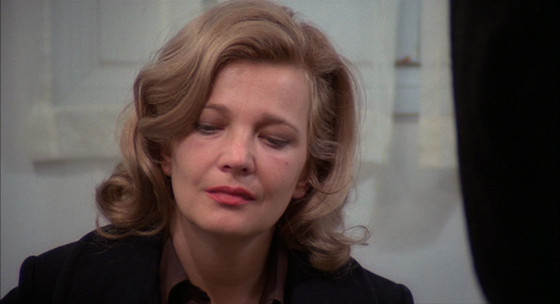
Directed by Alejandro G. Iñárritu, the winner of four Oscars (Best Picture, Best Director, Best Cinematography and Best Original Screenplay) at the 2015 Oscars is one of the most interesting films released upon this decade.
Following the story of Riggan Thomson (Michael Keaton in a great comeback performance), a middle-aged actor who is mostly known for playing the iconic character Birdman and whose career started to fall apart after he declined to make the fourth installment in this superhero franchise, we see this man seeking redemption by directing and starring in an adaptation of a famous Broadway play as he experiences a very complicated personal life.
Filmed in a way that emulates a single shot from almost the entirety of its running time, “Birdman” gave cinematographer Emmanuel Lubezki the second of the three Oscars he won in a row, and is one of the most remarkable works in the cinematographer’s career.
Iñárritu also went on to be in the very select group of filmmakers that won two Oscars in a row for best director; the first he won for “Birdman” and the second one for his work on “The Revenant”.
“Birdman” is a story that has many approaches. Crisis in the film industry, theater, the search for redemption, midlife crisis, magical realism, family drama, and many, many others. With all these approaches in mind, here is a selection of films that can be related to “Birdman” in one or more of these aspects.
So, here are 10 movies you should check out if you liked Birdman or (The Unexpected Virtue of Ignorance):
1. Youth (2015), directed by Paolo Sorrentino
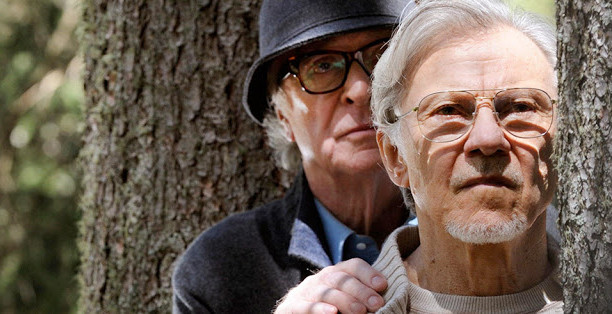
After the success of his 2013 film “The Great Beauty”, Italian director Paolo Sorrentino teamed up with Michael Caine, Harvey Keitel, Jane Fonda, Rachel Weisz and Paul Dano to tell this great tale about career and aging.
Following the story of Fred Ballinger (Michael Caine), a retired composer and orchestra conductor on holiday in the Alps, and Mick Boyle (Harvey Keitel), a director who works on a script of what should be his last great film, “Youth” is a movie that, above all, has a great approach on the nature of time.
Fred is a man who lost his wife, a singer, and for her he wrote in the past a series of “simple songs” that he refuses to play again because it was made for her voice alone. Aside from all the great and complex music he made in the entirety of his career, he seems to always be remembered for these “simple songs.”
In “Youth”, there’s a great dialogue between Jimmy Tree (Paul Dano in another great performance), an actor, and Fred when they talk about always being remembered for making something simple and how unforgiven this might seem. And that is exactly the connection in “Birdman”, with Riggan being the man who seeks redemption in searching for something bigger that he never had in the past, while Ballinger seems to walk toward acceptance.
2. 8 ½ (1963), directed by Federico Fellini

In one of Federico Fellini’s many masterpieces (and we all know he has way more than one), Marcello Mastroianni is Guido Anselmi, a filmmaker who just had a big hit in his career and is searching for a quiet time.
As the story develops, Guido tries and tries but cannot come up with something new for his next feature and recalls remarkable moments of his life, the people he loved and the stories he told in the past.
Often considered Fellini’s best movie, this autobiographical film has an approach on working with art and how difficult it is to make a movie and deal with the producers, the cast, the crew, the critics, and of course, yourself as an artist.
“8 ½” has many moments that show how magical this art form can be and how complex it is to deal with all these variables and still be able to focus on your work to make the best out of it. This film is, without any doubt, one of the greatest movies ever made and definitely should be seen by everybody.
3. Caesar Must Die (2012), directed by Vittorio and Paolo Taviani
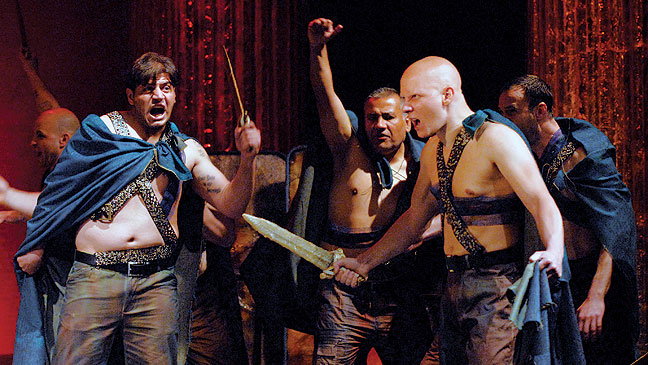
This Italian drama film that won the Golden Bear at the 62nd Berlin International Film Festival in 2012 shows us convicts of the Rebibbia Prison, a prison located on the suburb of the city of Rome, while they rehearse the play “Julius Caesar” by William Shakespeare.
Following the characters since the announcement of the Shakespeare play for that year’s theatre program, to the premiere of the play in question, “Caesar Must Die” has an unique approach on how the lives of those convicts are impacted by accepting the challenge of playing some of the most famous theatre characters in history.
As the rehearsals start, the people confined in this high-security prison start developing more and more artistically and some egos start to crash. Those iconic characters – Cassio, Bruto, Cesare, Marcantonio – are recognized as being so close and so distant to their reality.
This is a mandatory film for people who are fans of theatre, and is beautifully conducted by the Taviani brothers. And as Paolo Taviani said, he hoped that people from the audience could say to themselves that “even a prisoner with a dreadful sentence, even a life sentence, is and remains a human being.”
4. Rope (1948), directed by Alfred Hitchcock
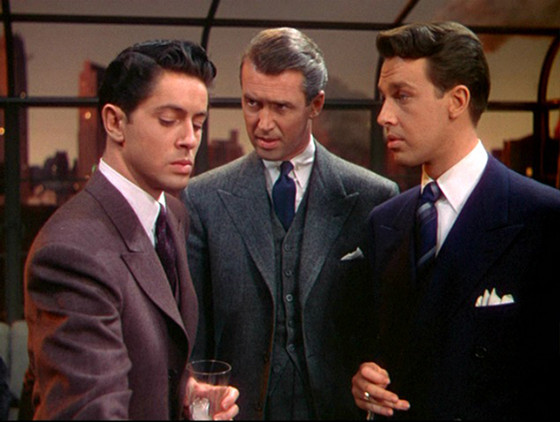
Alfred Hitchcock’s thriller film starring James Stewart, Farley Granger and John Dall, adapted from Patrick Hamilton’s play of the same name, is, beside being an amazing movie, a great homage to the theatre.
The story of Brandon (John Dall) and Phillip (Farley Granger), two men who share an apartment in New York City, that, considering themselves intellectually superior to a common friend, decide to strangle him and place the body in a chest at the middle of their living room right before they host a small party, is one of the most acclaimed Hitchcock films.
As told before, this homage to the theatre has a lot of long shots and cuts that are hidden to show the audience that this movie takes place in real time, as the play does. The amazing cinematography by Joseph A. Valentine and William V. Skall perfectly hides the cuts by often using colors and movement.
It is not hard to imagine that Alejandro G. Iñárritu and Emmanuel Lubezki took this film as a big influence to the form that “Birdman” was shot, and how important it is for movies like this, due to their connection with theatre, to be produced like this.
5. Synecdoche, New York (2008), directed by Charlie Kaufman
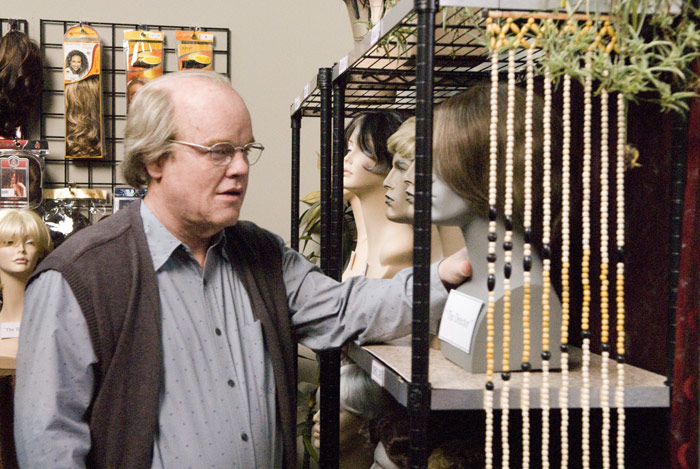
Forget “Eternal Sunshine of the Spotless Mind”, this is Charlie Kaufman’s masterpiece.
The directorial debut of acclaimed screenwriter Charlie Kaufman, who, before this film, wrote “Being John Malkovich” (1999), “Adaptation” (2002) and, of course, “Eternal Sunshine of the Spotless Mind” (2004), stars Philip Seymour Hoffman in one of his many brilliant performances.
Hoffman is Caden Cotard, a theatre director preparing a new play and, for that purpose, he builds and orchestrates, inside a warehouse, a replica of New York City while struggling with many personal issues.
As in most of Kaufman’s films, this is another one that’s very difficult to describe, using this warehouse as a way of showing his audience, scene after scene, the inside of Cotard’s mind and the forces that move his own existence.
Ranked in the 20th position on BBC’s list of the greatest films of the 21st century, “Synecdoche, New York”, year after year, gains more and more deserved recognition. Even though it polarized the critics when it was released at the 61st Cannes Film Festival, the film is now recognized as the masterpiece it really is.